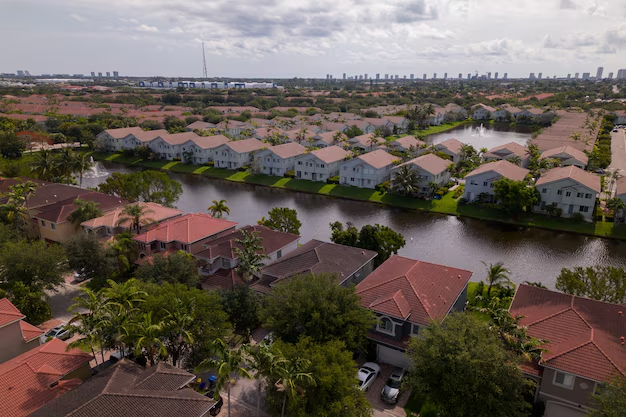Affordable Housing Solutions in Detroit: What You Need to Know
In the vibrant city of Detroit, finding affordable housing can be a daunting task, particularly for those with limited income. Income-based housing offers a critical solution by providing rental accommodations adjusted to individual financial capabilities. This model ensures that rent payments remain sustainable and do not exceed a fair percentage of a household's earnings. If you're navigating the housing market with budget constraints, here's what you need to know about income-based housing in Detroit and the resources available to assist you.
Understanding Income-Based Housing
Income-based housing, often referred to as affordable housing, operates on the principle that tenants pay rent based on their income. The aim is to alleviate the financial burden of housing, allowing residents to allocate resources towards other necessities and improving overall quality of life. Several key programs are available in Detroit to help residents access affordable housing:
Public Housing: Managed by the Detroit Housing Commission, public housing offers clean, safe rentals for low-income families, the elderly, and people with disabilities.
Housing Choice Voucher Program (Section 8): This program allows participants to select housing in the private rental market, with the choice and flexibility to pick locations that best meet their needs.
Low-Income Housing Tax Credit (LIHTC): LIHTC properties offer affordable rental options developed under tax credits given to developers for building low-income projects.
Applying for Income-Based Housing
To apply for these programs, potential tenants typically need to provide proof of income, detailed family demographics, and undergo a background check. Given the demand for such housing, there's often a waitlist, so it's crucial to apply promptly and keep application details up-to-date.
Broader Financial Assistance Options
Beyond housing, various financial assistance programs are available to support Detroit residents:
Government Aid Programs: Programs like TANF and SNAP provide financial relief for groceries, healthcare, and other essentials for qualifying residents.
Utility Assistance: Programs such as LIHEAP (Low-Income Home Energy Assistance Program) help cover heating and cooling costs.
Steps to Financial Stability
If you're striving for financial stability, consider exploring additional options beyond just housing:
Debt Relief Solutions: Opt for debt counseling services that can guide you towards consolidation and elimination strategies, tailored to reduce your financial burdens.
Credit Card Solutions: Low-interest credit cards or secured cards can provide vital credit-building opportunities, improving your financial credibility.
Educational Grants: Leveraging grants for higher education can drastically increase earning potential, opening doors to better living conditions and improved financial health.
Implementing a holistic approach to financial planning ensures that housing is just the starting point in your journey to financial freedom. The key is to utilize available resources diligently, working towards a sustainable future where affordable housing is one element of a broader strategy for overall well-being.
Quick Reference: Financial Aid, Credit, and Education Options
- 💡 Public Housing and Section 8: Apply through the Detroit Housing Commission for safe, affordable rental options.
- 💸 TANF & SNAP: Financial assistance for daily needs.
- 🔌 LIHEAP: Help with utility costs.
- 🏦 Debt Counseling: Personalized routes to manage and eliminate debt.
- 💳 Credit Building Tools: Explore low-interest or secured credit cards.
- 🎓 Educational Grants: Enhance earning potential and access better job opportunities.
Finding affordable housing in Detroit requires patience and perseverance, but with the right information and resources, the journey can become more manageable. By exploring these options and developing a comprehensive financial strategy, residents can enjoy greater stability and security.

